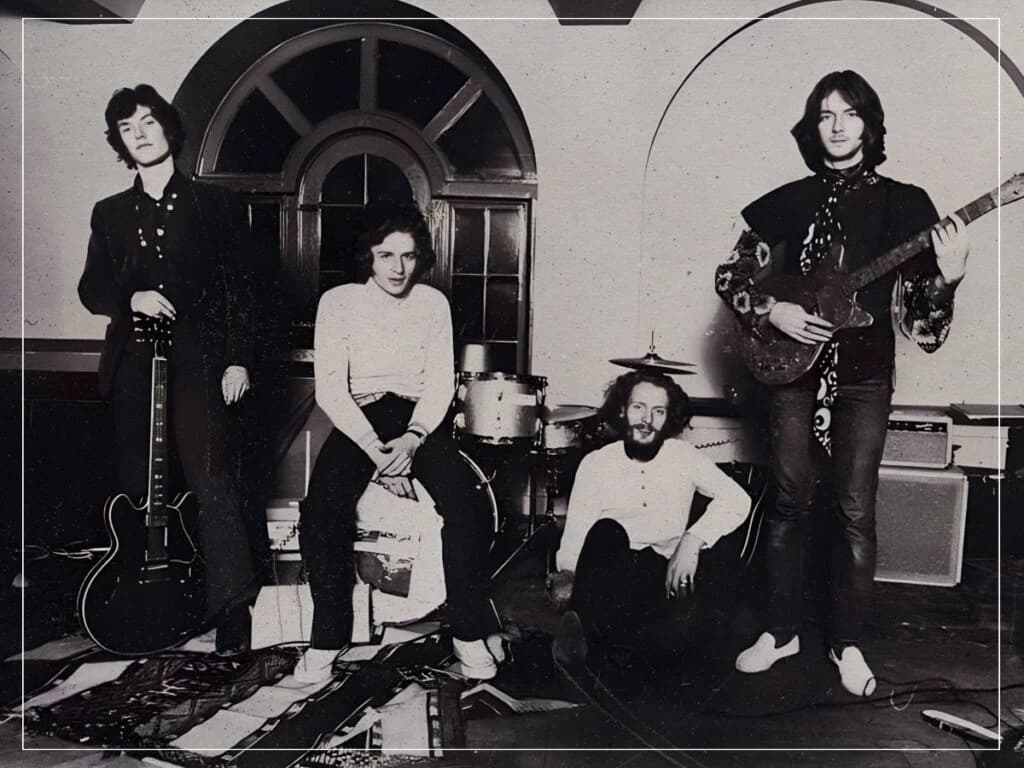
A Soulful Journey Through Doubt and Yearning: Blind Faith’s Enduring Anthem, “Can’t Find My Way Home”
Ah, “Can’t Find My Way Home”. Just the title itself whispers of those moments in life, doesn’t it? Those times when the path ahead seems shrouded in mist, and the comforting landmarks of certainty have faded into the twilight. Released in the summer of 1969, this poignant ballad by the short-lived but immensely influential supergroup Blind Faith resonated deeply with a generation grappling with change, searching for meaning in a rapidly evolving world. Though it didn’t set the top of the charts ablaze in the same way some of their contemporaries did, peaking at a respectable number 67 on the Billboard Hot 100, its impact far outweighed its chart position. “Can’t Find My Way Home” became an instant classic, a quiet storm of emotion that continues to stir the hearts of listeners decades later.
The story behind Blind Faith itself is a fascinating, albeit brief, chapter in rock history. Formed from the ashes of two titans of the British blues-rock scene – Eric Clapton from Cream and Steve Winwood from Traffic – expectations were stratospheric. Adding the rhythmic prowess of Ginger Baker, also of Cream, and the understated bass of Ric Grech, the band was initially hailed as a musical dream team. Their self-titled debut album, Blind Faith, released in August 1969, was met with both critical acclaim and commercial success, reaching the coveted number one spot on both the US Billboard 200 and the UK Albums Chart. Yet, amidst this whirlwind of attention, a certain fragility seemed to underpin the band’s journey. Perhaps it was the immense pressure, the clash of distinct musical personalities, or simply the relentless touring, but Blind Faith dissolved after only one album and a handful of live performances.
“Can’t Find My Way Home”, the album’s hauntingly beautiful centerpiece, stands as a testament to the creative synergy that briefly flickered within this extraordinary group. Penned by Steve Winwood, the song is deceptively simple in its structure, yet profoundly complex in its emotional depth. The gentle acoustic guitar intro, soon joined by the ethereal organ and the subtle, almost hesitant rhythm section, creates an atmosphere of introspection and vulnerability. Then, Winwood’s voice enters – a voice filled with a yearning that seems to reach across time and touch the listener’s soul.
The meaning of “Can’t Find My Way Home” is open to interpretation, which is perhaps part of its enduring appeal. On the surface, it speaks of a sense of being lost, both literally and figuratively. The lyrics evoke images of wandering through darkness, searching for a guiding light, a familiar presence to lead the way. “Come down off your mountain, dear friend, and leave your worries behind,” Winwood sings, a plea that resonates with anyone who has felt the weight of isolation or uncertainty.
However, the song transcends a simple tale of being geographically lost. It delves into the deeper anxieties of the human condition: the search for purpose, the struggle with doubt, and the longing for connection. The “mountain” could represent emotional distance, personal struggles, or even the burdens of fame and expectation that the members of Blind Faith themselves might have been grappling with. The plea to “leave your worries behind” speaks to a universal desire for peace and solace.
The beauty of “Can’t Find My Way Home” also lies in its understated instrumentation. The interplay between the acoustic guitar and the organ creates a delicate tapestry of sound, perfectly complementing the melancholic tone of the lyrics. Eric Clapton’s subtle electric guitar fills add a touch of bluesy introspection, while Baker and Grech provide a solid yet unobtrusive foundation. It’s a masterclass in musical restraint, where every note serves a purpose, enhancing the overall emotional impact of the song.
Thinking back to that era, the late 1960s, there was a palpable sense of searching in the air. The old certainties were being questioned, and a new, often uncertain, future was unfolding. “Can’t Find My Way Home” seemed to capture that feeling of being adrift, yet also offered a glimmer of hope, a yearning for connection and a path forward. It wasn’t a loud, anthemic call to arms, but rather a quiet, introspective reflection on the human journey.
Even now, decades later, “Can’t Find My Way Home” retains its power. Its message of searching and yearning remains timeless, resonating with new generations who face their own uncertainties and challenges. The song’s gentle beauty and profound emotional depth serve as a reminder that it’s okay to feel lost sometimes, and that the search for our way home, whatever that may mean to each of us, is a fundamental part of the human experience. It’s a song that invites us to pause, to reflect, and perhaps, to find a little solace in the shared experience of navigating life’s often-winding roads. It’s a testament to the enduring power of music to articulate the deepest corners of our hearts.